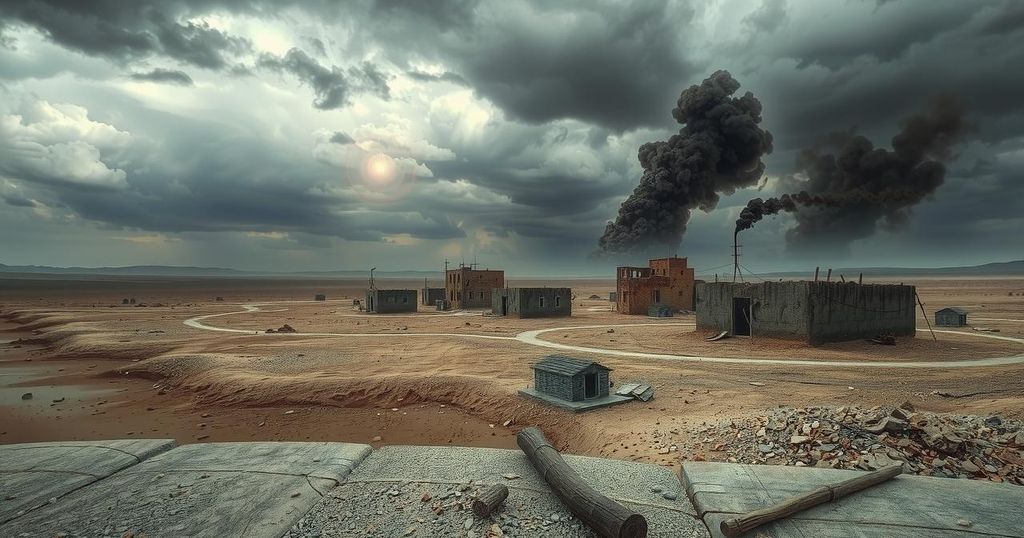Congo Offers Trump Access to Minerals in Exchange for Military Support

The President of the DRC, Félix Tshisekedi, has proposed a deal to President Trump, offering U.S. access to vital minerals in exchange for military support against the M23 rebel group. This partnership could enhance U.S. competitiveness in technology industries. Negotiations are ongoing with Erik Prince regarding mining revenue security. The context is a long-standing conflict in the region linked to historical events.
The President of the Democratic Republic of Congo (DRC), Félix Tshisekedi, has proposed a secret arrangement to U.S. President Trump, offering access to valuable mineral resources in return for military support against rebel forces. In a letter dated February 8, Tshisekedi underscored the potential partnership’s strategic value, highlighting crucial minerals such as cobalt, lithium, copper, and tantalum that U.S. technology firms critically need.
Tshisekedi is seeking a formal security agreement that would help DRC’s army combat M23, a well-armed rebel group supported by Rwanda. This group has recently taken over key areas in Eastern Congo. While the letter lacks specifics regarding military assistance, a White House official refrained from commenting on private correspondences.
The timing of this proposal aligns with Tshisekedi’s discussions with Erik Prince, founder of Blackwater, who may assist the Congolese government in regulating mining taxes. The Eastern Congo region is rife with militia activity, stemming from historical conflicts and the 1994 Rwandan genocide, which has contributed to instability and violence.
Rwanda has denied accusations of military support for M23, although a U.N. report indicated the presence of Rwandan troops aiding the rebels. As regional powers compete for mineral resources, the U.N. noted that Rwanda received shipments of smuggled coltan, a valuable mineral mostly found in DRC.
Tshisekedi’s offer reflects an attempt to leverage Trump’s foreign policy focus on resource acquisition. He suggests that collaboration could enhance U.S. competitiveness in high-tech industries, as the minerals mentioned are vital for smartphones, electric vehicles, and various technologies, with figures like Elon Musk labeling lithium as “the new oil.”
A spokesperson for Tshisekedi confirmed the letter’s authenticity and claimed that negotiations for U.S. access to Congolese resources are advancing. An intermediary from the banking sector conveyed this proposal to Trump’s office, leading to further discussions with the National Security Council.
The push for military assistance emerged alongside the U.S. Treasury’s sanctions against individuals linked to the DRC conflict. Officials from Tshisekedi’s administration expressed an interest in curbing the flow of “blood minerals” through international cooperation.
Prince has yet to finalize any agreements, but he is reportedly exploring ways to bolster Congo’s mining revenues while addressing tax evasion within the sector. His role would center on enhancing security for tax officials to ensure compliance from mining enterprises.
Erik Prince’s past involvement with private military operations during conflicts in Iraq raises questions regarding his potential influence in Congo. Notably, the firm Blackwater has faced significant scrutiny for its actions during the Iraq war, which led to increased calls for accountability and reform in security contracting.
Trump’s administration has consistently centered its foreign policy on securing natural resources for American businesses. Discussions have included various strategic partnerships tied to oil and minerals in countries like Iraq, Venezuela, Ukraine, and Russia, highlighting a broader goal of procuring essential resources globally.
Overall, the proposal from Congo illustrates the complexities of international relations, where resource acquisition can significantly influence diplomatic engagements, especially in regions fraught with conflict and instability.
In summary, Félix Tshisekedi’s proposal to President Trump illustrates a strategic alliance aimed at securing valuable mineral resources from the DRC in exchange for military support against insurgency. With the ongoing negotiations involving Erik Prince and the backdrop of regional instability, this situation highlights the intersection of international relations, resource management, and foreign policy. Ultimately, the outcome could significantly affect American technological industries while offering the DRC an opportunity to stabilize its mining sector.
Original Source: www.livemint.com







